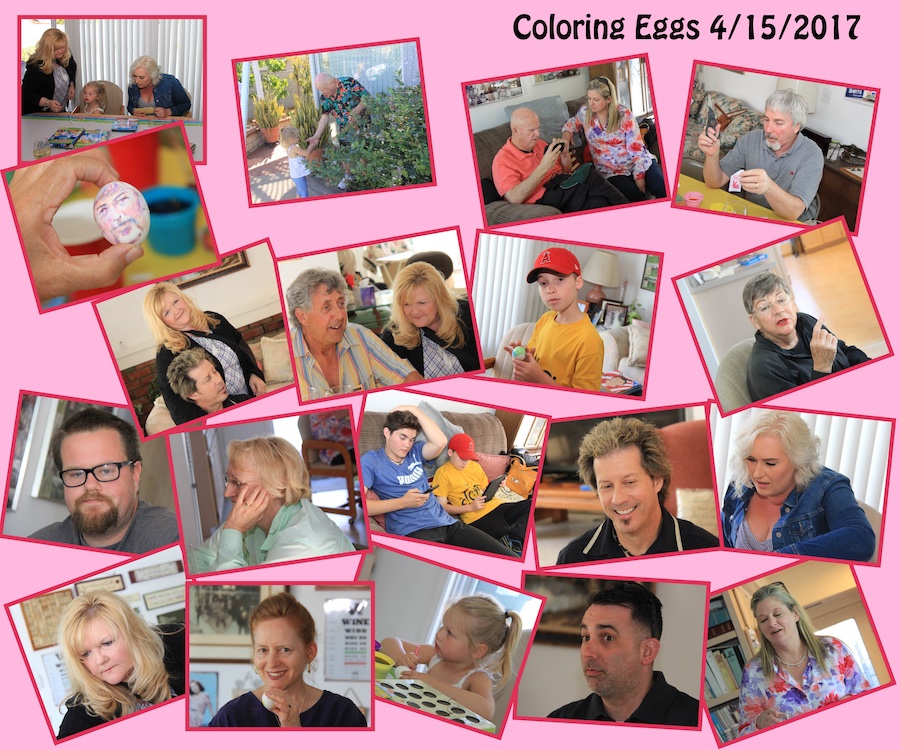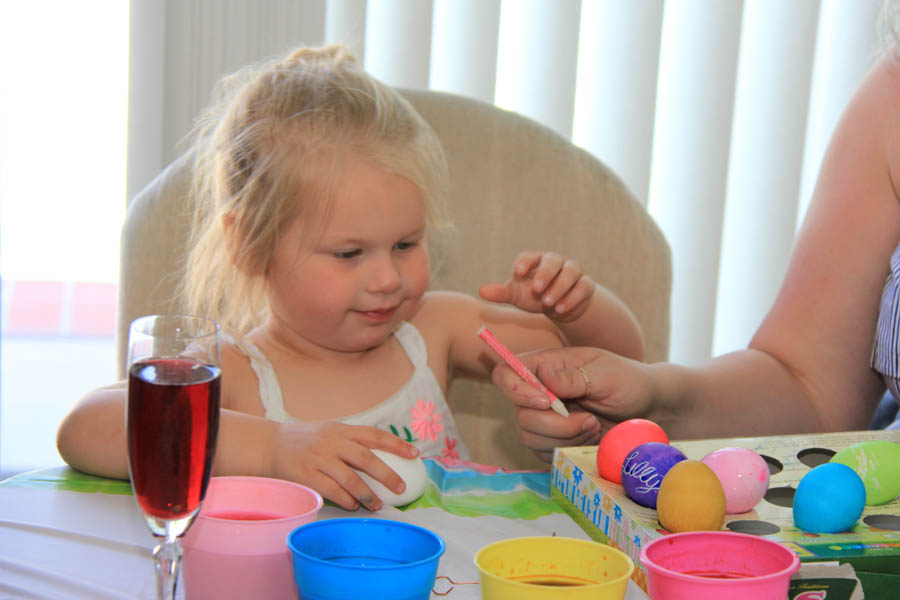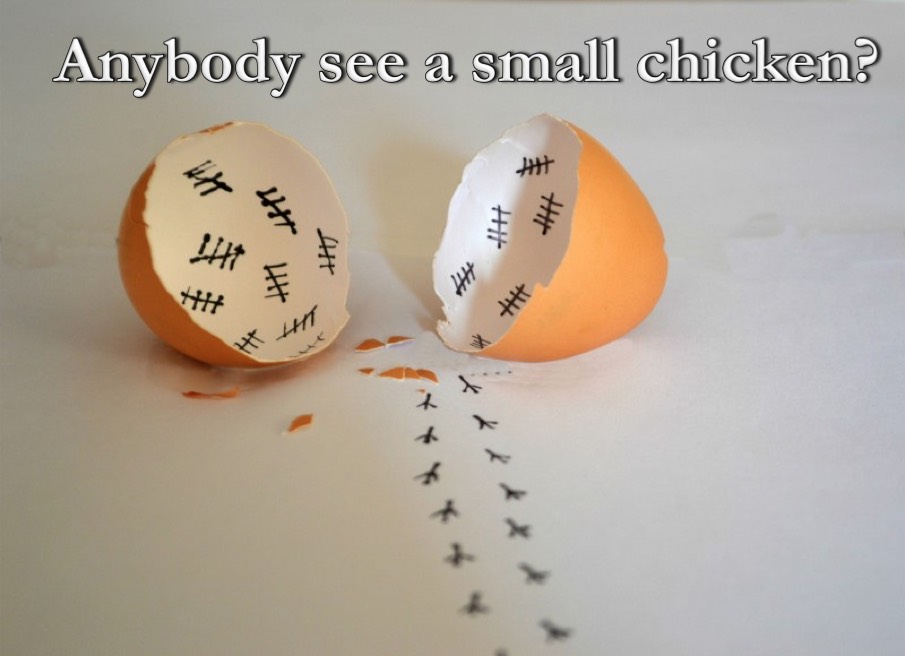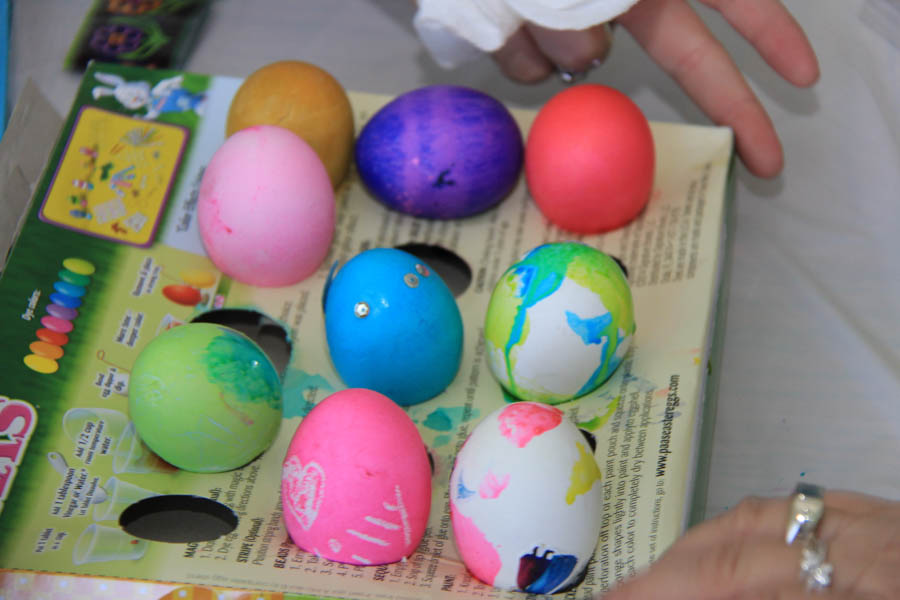Tummies Are Full... Time To Be Creative (Page Two)
The time has come when the egg must meet the artists and colors will fly! Join the fun!



Miss Lilly gets a lot of attention!

She is deciding which one to try first!

"I got mine! Says even a ten year old can do it!"
Did You Know? - According to some sources, the Easter bunny first arrived in America in the 1700s with German immigrants who settled in Pennsylvania and transported their tradition of an egg-laying hare called "Osterhase" or "Oschter Haws." Their children made nests in which this creature could lay its colored eggs.

Brian studies the colors and studies his newest target

Franklyn prepares his colors!

"Hey look.... Three shades of grey!"

Becca carefully shares her ideas with Miss Lilly


Lilly watches carefully so she can become an expert!

Colors must be carefully mixed


Lilly is taking it all in!
Robin loves the little ones!

"Get ready... Here I come"


Great amounts of constipation going on here... Oops! Concentration!

Carefully selecting the proper colors
is an art unto itself!


Grandma asks Zack a question!

Any doubt what his feelings are about it?

We are so proud of our grandsons!
Wish Jonathan could be with us once in a while.


A#1 Dad
Did You Know? - In the Orthodox and Eastern Catholic Churches, Easter eggs are dyed red to represent the blood of Christ, with further symbolism being found in the hard shell of the egg symbolizing the sealed Tomb of Christ — the cracking of which symbolized his resurrection from the dead.

Lilly did a terrific job on her egg!

It's called a "Lilly Egg"
Did You Know? - The U.S. produced 90 billion eggs in 2005, up from 68.1 billion in 1990.
A chicken egg shell has as about 17,000 tiny pores on the surface of the shell.
A hen requires about 24 to 26 hours to produce one egg, but one hen was reported to have produced 7 eggs in one day.
About 2/3 of the chicken eggs produced in the U.S. each year are sold in the shell. The other 1/3 are broken out of their shells,so they can be made into liquid, frozen, dried and specialty egg products.
An average hen lays an average of 266 eggs per year. The record is 371 eggs in one year.
In 2003, an estimated 87.2 billion eggs were produced in the U.S., with about 85 percent of them destined for human consumption
USDA Economic Research Service.
U.S. per capital consumption of eggs in 2003 was the equivalent of 254 eggs, an increase of 19 eggs per person from 1990. (USDA Economic Research Service).
According to the Guinness Book of Records, the record for throwing a fresh egg without breaking it is 317 feet, 10 inches.

A masterpiece

"This is harder than it looks!"

We could not pry the adults from the table!
Did You Know? - For Christians, the Easter egg is symbolic of the resurrection of Jesus Christ. ... An egg hunt involves hiding eggs outside for children to run around and find on Easter morning. Eggs are rolled as a symbolic re-enactment of the rolling away of the stone from Christ's tomb.

Brian's work of art starts to take shape!

The kids table?

"Looks good Mommy!"

Experts in action!

Colors are flying!
Lisa wore the appropriate blouse... Pre-colored!


Greg puts out an APB for a little chicken!

Nice collection of eggs
Did You Know? - Since ancient times rabbits have been associated with spring. It is believed that Anglo-Saxon Goddess of Spring, Eostre had a hare as her companion. The hare symbolizes fertility and rebirth. Later Christians changed the symbol of the hare to the Easter bunny.

